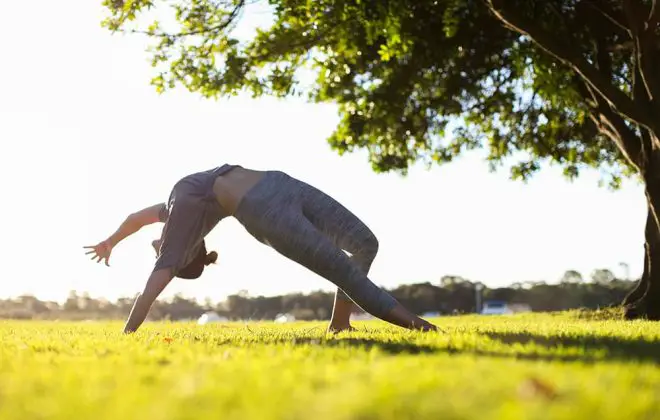12 Proven Sleep Hygiene Tips For Athletes To Get Better Sleep
Athletes place a high load on their bodies and need to be able to recover quickly for the next training session. If we think about it, bedtime is the only time during the day when our body can fully relax, which makes sleep for athletes the most powerful recovery tool. However, a truly restorative sleep is not only about spending more time in bed. Scroll down for key sleep hygiene tips for athletes.
My sleep regime used to be very random. I couldn’t figure out why I felt under-recovered for a training session even though I slept more than usual.
Only when I got myself a smartwatch that tracks sleep I started noticing some patterns. All the data got me really interested about what creates a more restorative sleep for athletes and how my body responds to different factors.
Importance of sleep for athletes
Regeneration is quickest during sleep, as the change in body’s internal processes foster that. The heart rate slows down, blood pressure decreases and blood vessels across the body widen (including in the brain and stomach), muscle tension eases. All of that promotes better blood flow throughout the body and normalizes the work of all systems.
Also, during sleep the body is usually horizontal and muscle activity is minimal (no need to maintain balance), which makes it easier to flush out the waste products. This is particularly important for lower body muscles that are located below the heart and blood needs to travel against gravity.
Moreover, during sleep brain activity slows down, allowing the nervous system to relax. This leads to improved reflexes, better coordination, faster reaction time, better concentration and, of course, more willpower. All of that helps athletes to be more mentally strong and dedicate more focused efforts to training.

How does sleep affect athletic performance
As much as sleep is essential to good health and high performance, consistent lack of it has exactly the opposite effect. Those who ‘survive’ on 5-6 hours of sleep every night may even feel like a different person over time. Grumpy mood, lack of energy, trouble concentrating or remembering things, slow reflexes and reaction time. These are some of the long-term effects of lack of sleep.
Sleeping in on a Sunday to settle a sleep debt is a sign that a person is not getting enough on a regular basis.
For athletes these effects are amplified and insufficient sleep doesn’t allow the body to repair itself from the combined stress of daily life, training and competitions. Ultimately, this may lead to to accumulation of fatigue, performance drops and even training plateaus. On top of that, since stress affects the immune system, sleep-deprived athletes are also more susceptible to illness.
Related: How To Measure Post Workout Recovery And Avoid Accumulated Fatigue
Forcing our body go into ‘overdrive’ mode by not sleeping enough is not the best strategy to wake up every day positive and energetic. By not recovering completely every day we force our body to accumulate more stress, which burns more energy and slows down our recovery processes. And that doesn’t seem like something we should be doing.
However, it’s not only about the quantity. We need continuous, uninterrupted and restorative sleep to maximize recovery. But what does that mean?
How much sleep do athletes need?
This is where the science of sleep cycles comes in.
Our body goes through several phases of sleep every night – light sleep, deep sleep and REM sleep. Progression through these stages is called a sleep cycle and generally lasts 90 – 120 minutes. After the cycle has completed, the process repeats itself.
So, every night the body goes through several sleep cycles – generally 4 to 5.
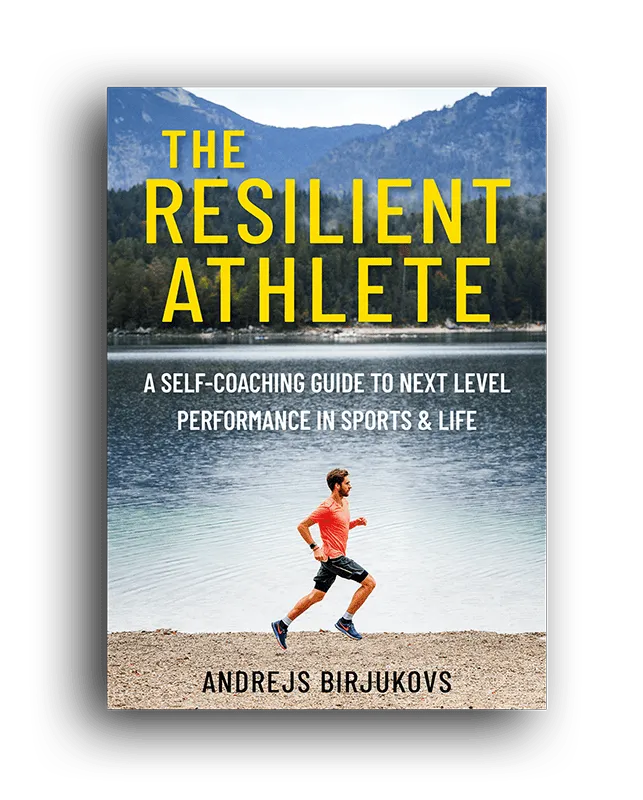
The Resilient Athlete
A Self-Coaching Guide to Next Level Performance in Sports & Life
Are you aiming to become a resilient athlete who is able to withstand any pressure? Be able to jump on any opportunity? Take any challenge life throws at you head on?
Then this book is for you.
Learn moreLight sleep – preparation phase
Each sleep cycle starts with a ‘light sleep’ phase (or stages 1 & 2, as some classify). It’s, sort of, a preparation phase when the body organizes itself for a more restorative sleep later. Brain activity slows down, muscles start to relax, body temperature begins to decrease and the heart rate slows down.
Occasionally, people may experience abrupt muscle spasms or a sensation of falling while drifting into a deeper sleep.
It takes a while for all these processes to complete. So, generally, light sleep accounts for ~40%-60% of the total sleep time.
Deep sleep – restorative sleep
Deep sleep (or stage 3) is where the magic happens. It’s the most restorative sleep stage, as the body works on repairing muscle damage, recovering nervous system and regenerating energy. The body’s brain and physical activity is minimal and it’s often difficult to awaken someone in deep sleep stage.
The first deep sleep phase is the longest and it gets shorter as the night progresses. Overall this phase only lasts for 5% to 15% of total time spent asleep for adults. Children and people who spent extensive time without sleep tend to spend more time in deep sleep phase.
Often even though we sleep long enough we still don’t wake up well-rested. That’s because of lack of deep sleep.
Tossing and turning throughout the night (due to discomfort, stress or even a large meal) prevents our body from fully relaxing and drifting into deep sleep. As a result, we don’t get to experience the restorative effects of this phase and end up waking up tired.
Deep sleep for athletes is particularly important. During this stage the pituitary gland releases human growth hormone (HGH) that stimulates tissue growth and muscle repair. This plays a key role in recovering muscle damage after training sessions and supercompensating.
Consistent lack of sleep causes a decline in growth hormone production. Its deficiency is associated with loss of muscle mass, reduced exercise capacity, premature ageing and so on. So, getting more restorative sleep every night should be a priority for everyone, not only athletes.
Related: 14 Effective Ways To Reduce Muscle Soreness And Speed Up Recovery
REM Sleep – dreaming phase
Rapid Eye Movement or REM (or stage 4 sleep) is the phase when the most vivid dreams occur.
At this point of time the brain activity increases, breathing becomes more rapid, heart rate and blood pressure rise, eyes move rapidly from side to side. Muscle paralysis also occurs as a protection against acting out the dreams and getting injured.
The first REM stage is short, but gets progressively longer as the sleep time progresses. At the beginning of the sleep time the body spends more time in deep and light sleep and towards the end more time in REM phase.
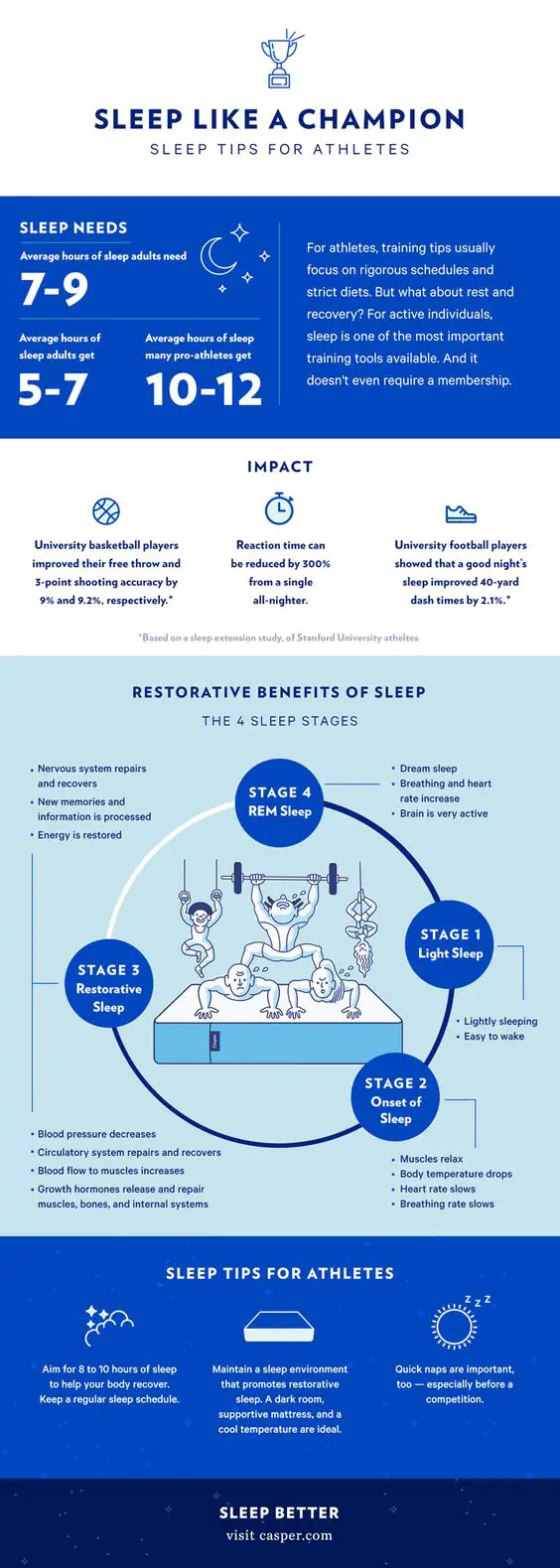
Sleep hygiene tips for athletes
So, deep sleep is the most restorative sleep and if we get more of it we’ll feel more recharged, right?
Well, deep sleep is like a unicorn. Or a tooth fairy. You can’t really schedule your body to get into deep sleep mode, as the duration differs from person to person and various factors can impact it.
However, after I started tracking how good I’ve slept I noticed various patterns. Things like interruptions, too much tossing and turning, movement are all signs of low quality of sleep. Minimizing those helped me get more restorative sleep and optimize recovery and energy for my training sessions. Below are the major ones.
Sleep more
For most of the people consistently sleeping more would provide a significant positive boost to their daily life. That includes having a strong immune system, positive mood, willpower and energy to make stuff happen.
While there is no magic number how much sleep a person needs for optimal health, studies tend to agree that 8 hours is a minimum that people should target. Athletes, on the other hand, might need 9 or even 10 hours of sleep to tolerate the training and daily stress to ensure timely recovery for next session or competition.
Those on intense training schedule will benefit from longer naps (1+ hours), but it’s best to include them early in the day to avoid interfering with the sleep at night. At training camps we used to sleep 8-9 hours every night and have a 1-2 hour nap between morning and afternoon training session.
Have a schedule
By far the best way to ensure you’re getting enough sleep every night is to have a schedule. That is, going to sleep at the same time, so that the body is used to a consistent rhythm.
Often this can improve the quality of sleep, as the ‘organized’ internal clock will tell the body when to fall asleep.
A sign of a solid sleep schedule is when you feel rested in the morning, able to wake up without an alarm and don’t need to catch up on sleep in the weekend.
Go to bed early
Personally, I noticed that it’s easier to consistently get enough sleep when you’re going to bed early. I used to just hang around in the evening doing nothing and quite often forgot what the time was. More often than not I found myself going to sleep around midnight and then rushing through the morning.
As I started to go to bed earlier I noticed that it got much easier to get at least 8 hours of sleep every night and my mornings got much more productive.
Related: 5AM Morning Routine – Best Habits For A More Productive Morning
Relax before bed
Often people go to sleep late, because they have trouble falling asleep earlier. And there is a reason to that. It takes some time for our brain to switch off and start relaxing. Doing something mentally engaging (working, studying, flipping through social media) right before bed only engages our brain more.
A good way to fall asleep is to develop a ‘relaxing’ routine to calm the body before bed. It can include whatever helps to slow down the brain activity and help the body to get to those light and deep sleep phases easier:
- Reading a real book (not an iPad or a phone)
- Stretching or yoga
- Meditation
- Journaling
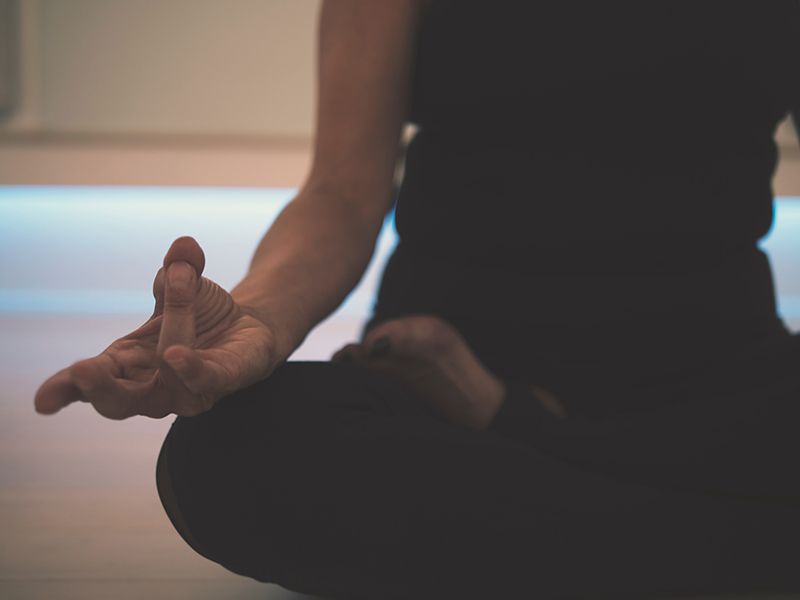
Often people can’t sleep the night before the race, thinking how it will go. Meditation will help to dial down this kind of stress or anxiety and assist in falling asleep.
Invest in a good mattress
The bed and the mattress a person sleeps on plays a huge role in how restorative the sleep will be. Too soft, too hard or uneven surface will force the body to toss and turn searching for a comfortable spot.
Ideally, the mattress should be somewhat hard to promote a horizontal sleeping position.
Get quality bed sheets and wash them often
Sleeping on qualitative, fresh and clean bed sheets is one of the easiest ways how to get better sleep.
I never paid attention to why I sleep better in a hotel. But then I noticed that every time I changed bed sheets my smartwatch recorded more deep sleep and I generally felt much fresher.
Qualitative bed sheets are not designed only for aesthetic purpose. They are softer to the body, allowing it to relax better and reach a more restorative sleep phase.
Don’t (over-)eat before going to bed
This one is a big change.
We’re often told not to eat 2-3 hours before going to bed, but many don’t think too much about it. What happens if we eat before sleeping is that the body has to work hard to process the food and is not able to fully relax and reach the deep sleep phase.
We think we’re giving the body nutrients by eating before bed, but in reality it can’t properly use them.
It’s best to go to bed a bit hungry than full. The body will be able to relax better and increase the production of Human Growth Hormone (HGH) because of the fasting effect.
Introducing more plant-based meals (less protein-heavy) will generally help the body to process food faster. In fact, Jan Frodeno (Olympic and multiple IRONMAN World Champion) shared that that he noticed his sleep improved after switching to a vegetarian diet and in general he needed less sleep to feel recovered.
Personally, I feel I have more energy and recover quicker after switching to a more plant-based diet as well.
Also, after a meal cortisol is released in our body increasing the overall level of stress and preventing from reaching the deep sleep phase. For a regular person it’s increased by ~5%, whereas for overweight people by as high as 50%.
For the same reason it’s best to avoid alcohol in the evening. While it can make people sleepy, it’s only because it helps to relax the brain activity. Alcohol is ultimately a toxin and while you’re asleep the body works hard to fight it and can’t fully relax.
Sleep in a dark, quiet & cool room
The environment we sleep in is another important thing to consider. Limiting as much external stimuli as possible will help the body to relax and shut down.
Dark room will promote the production of melatonin – a hormone that regulates the sleep cycle. Closing the drapes or blinds and removing all electronics that elicit light is a good start. An eye mask is a good alternative – many professional athletes use it on daily basis to ensure complete darkness.
Limiting noise will allow the brain activity to slow down. Shutting down the radio or TV, closing the doors and windows to avoid the sound coming from the streets – all of it will help to remove the noise that the brain picks up. Like with ear masks – using ear plugs is a good addition.
Cool room (~22°C) will help the body to regulate its core temperature. Open the windows before going to sleep to let fresh air in. Leave them open if the street you live on is quiet.
Go commando
Finally, sleeping naked makes the body more comfortable. It helps to regulate the body temperature (avoid being too hot) and removes any restrictions that might press on the body and make it uncomfortable.
Did you find this information useful? Share the post with others using the buttons below.
Tags In
Andrejs
Related Posts
Leave a Reply Cancel reply
GET A FREE TRAINING PLAN
Subscribe to my email list and get access to a free 4-week “back in shape” training plan
You’ll also get two full-body strength sessions and some other goodies!
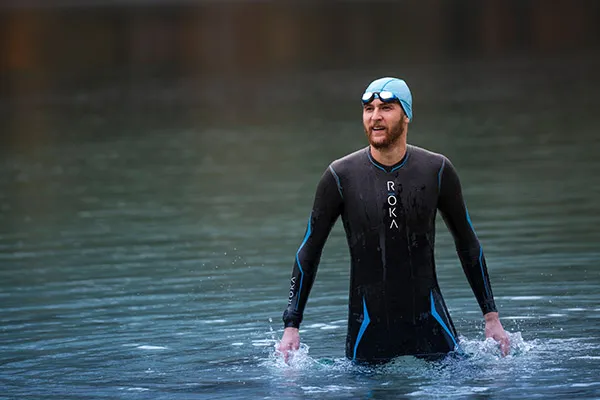
How did I get here?
Hey there! My name is Andrejs and I am here to inspire, entertain and get you fit for any adventure.
I went from being an over trained pro athlete to an endurance coach sharing how to listen to your body and live life to the fullest.
Traveling, new sports & activities brought new meaning to my training and made it much more effective, fun and enjoyable. And I'm here to help you do the same.


